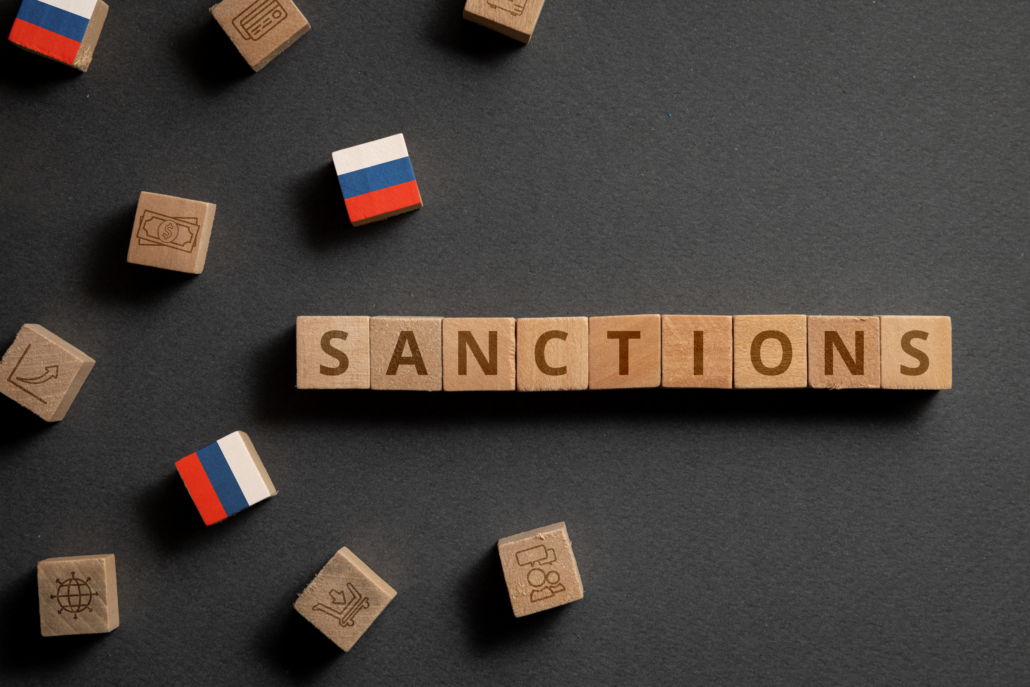#EconomicPolicy
#EconomicPolicy77
Contacts:
Contact
Jean Imbs
NYU Abu Dhabi
jeanimbs@gmail.com
Laurent Pauwels
University of Sydney
laurent.pauwels@sydney.edu.au
Effects of trade sanctions against Russia:
New evidence of wide variation in costs to East and West European countries
While the costs to the European Union (EU) as a whole of a variety of trade sanctions on Russia are small, there are big asymmetries. In particular, small European countries that were satellite economies of the Soviet Union suffer enormously more than large West European economies, sometimes by several orders of magnitude.
That is the central finding of research by Jean Imbs and Laurent Pauwels, which uses a new empirical approach to approximate the costs of trade sanctions in general, with a direct application to the Russian case. The study also shows that these most affected European countries do not typically have access to substitute markets: they are in fact highly dependent on Russia, in contrast with large West European economies.
This extreme dependence on Russia is at least partly explained by the existence of specific energy-transporting infrastructure (pipelines) that appear to constrain production tightly in those heavily affected East European economies. These findings raise equity issues within the EU about the desirability of trade sanctions.
It is notoriously difficult to evaluate the economic consequences of trade sanctions. In response to sanctions, countries turn to alternative markets, which may or may not be costly depending on how easy it is to find substitutes.
The conventinal approach in economics consists of constructing complex models allowing for such substitutability and then simulating them on the basis of some parameter values that are deemed plausible. But there is a set of such parameters that are particularly difficult to calibrate and yet absolutely crucial for the end results, namely the elasticities of substitution between alternative inputs or alternative destinations.
For example, knowing how easy it is to find alternatives to Russian gas for Germany is virtually as hard as it is to evaluate the very costs to Germany of such an embargo.
This study proposes a fully empirical approach to approximating the costs of trade sanctions in general, with a direct application to the Russian case. The approximation is empirical, which means it does not rely on a calibrated model and therefore does not rely on a calibration of any elasticity of substitution.
The idea is to extract from the historical patterns of trade the components that would be set to zero under an embargo. Importantly, the approximation considers the indirect consequences of the embargo, in the sense that it incorporates the forgone activity corresponding to the linkages located downstream and upstream of the embargoed good.
For example, a German embargo on Russian gas implies lost output in the German sectors that use Russian gas as an input, but also lost output in those sectors located downstream of the affected German sectors.
How do we know whether the approximation makes sense? The researchers present two arguments. The first one is theoretical. The condition for the approximation to be valid in a conventional model is reasonably plausible: it requires that the immediate response of the consumer price index to the sanctions be negligible.
The second argument is empirical. The researchers verify that their approximation implies costs of sanctions that are comparable to what has been documented in previous research for plausible parametrisations (of the elasticity of substitution, particularly).
Like others, the researchers find that the costs to Russia and to the EU of a variety of trade embargoes are small. For example, lost output in both regions is less than 1% of GDP in response to a European embargo on Russian energy (but the effect on Russia is an order of magnitude larger than on the EU).
One of the key advantages of this approximation is that it can be performed readily for a broad range of sectors and countries provided input-output data are available between them. The authors illustrate this versatility with a country-by-country decomposition of the consequences of different embargoes on trade with Russia.
They find that the small effects on the EU as a whole mask vast asymmetries: whether considering an embargo on Russian exports to the EU, or an embargo on EU exports to Russia, the study finds that the small European countries that were satellite economies to the Soviet Union suffer enormously more than large West European economies, sometimes by several orders of magnitude.
The authors then adapt their empirical approach to show that these most affected European countries do not typically have access to substitute markets: they are in fact highly dependent on Russia, in contrast with large West European economies. This extreme dependence on Russia is at least partly explained by the existence of specific energy-transporting infrastructure (pipelines) that appear to constrain production tightly in those heavily affected East European economies.
These findings raise equity issues within the EU about the desirability of trade sanctions with interesting political consequences. They also illustrate the practical versatility of the authors’ approximation in a variety of different contexts.
An Empirical Approximation of the Effects of Trade Sanctions on Russia
Authors:
Jean Imbs (NYU Abu Dhabi and the Paris School of Economics)
Laurent Pauwels (NYU Abu Dhabi, the University of Sydney and CAMA (ANU))






